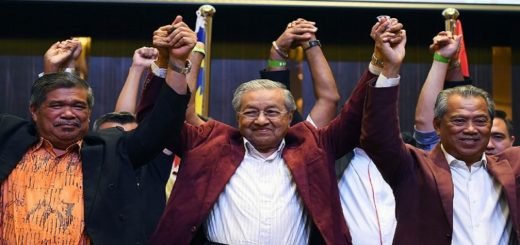Egypt opens Raffah Border Crossing for Gaza in Ramadan
Abdel-Fatah al-Sisi, announced he had ordered the opening of the Rafah border crossing with Gaza for the entire Muslim holy month of Ramadan, the longest length of time since 2013.
Sisi wrote on his official Twitter account late Thursday that the opening would “alleviate the burdens of the brothers in the Gaza Strip”.
The Rafah crossing is Gaza’s main gate to the outside world. Egypt has kept Rafah largely sealed off since 2013, after Egypt’s elected Islamist president Mohamed Morsi was ousted.
On Friday, travellers were slowly moving toward the crossing. A bus arrived about every hour with people whose names appeared on lists provided by Hamas officials, who oversee who goes through the border.
Hussein told the UN meeting in Geneva that many of the Palestinians injured and killed “were completely unarmed [and] were shot in the back, in the chest, in the head and limbs with live ammunition”, saying there was “little evidence of any [Israeli] attempt to minimise casualties”.
“Although some of the demonstrators threw molotov cocktails, used slingshots to throw stones, flew burning kites into Israel and attempted to use wire-cutters against the two fences between Gaza and Israel, these actions alone do not appear to constitute the imminent threat to life or deadly injury which could justify the use of lethal force.”
The comments came as the session was considering a resolution put forward by Pakistan and other Muslim countries calling for an “independent, international commission of inquiry”.
Israel’s ambassador to the body, Aviva Raz Shechter, however, insisted her country had tried to minimise casualties when it defended its borders against “terrorists” in Gaza, and blamed Hamas militants for using human shields, accusing the council of indulging the “worst form of anti-Israel obsession”.
“This special session, the resolution before you, and its call for a commission of inquiry are yet again politically motivated and won’t change the situation on the ground by even one iota,” she said.
Israel has justified its actions, arguing it was necessary to stop mass infiltrations from the blockaded Palestinian enclave, which is run by the Islamist Hamas movement.

EGYPT-RAFAH/BORDER – *COLOUR ONLY* Map locating the Rafah border crossing on the Egypt-Gaza Strip border | Image: Reuters
Israel has long argued that Hamas hides behind the civilian population in Gaza as an explanation of the high casualty rates among non-combatants, pouncing on the claim by a Hamas official that 50 of the 60 killed on Monday were associated with the group.
Critics, including Israeli human rights lawyers and activists, however, insist that Israel’s use of lethal force over possible alternatives is a clear violation of human rights law.
“Let me put it in a soundbite,” laywer Michael Sfard told Slate after Monday’s killings. “International law allows endangering human life in order to protect human life, not any other thing. And what we are seeing here is a deviation from that very simple, very important principle.”
The special UN session came after six weeks of mass protests and violence along the Gaza border with Palestinian refugees demanding the right to return to their homes inside what is now Israel.
Source: UN , The Guardian Md. Irfan Ansari The Kootneeti Middle East Monitor



















